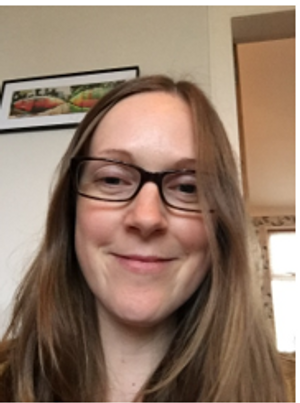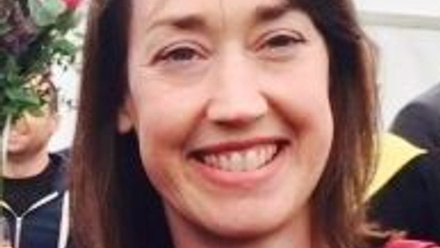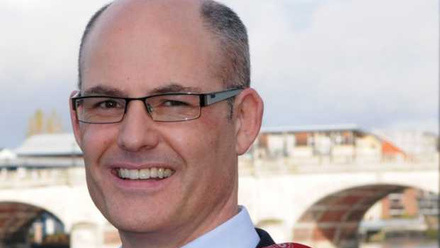Member Spotlight: Nicola Veitch

Prof Nicola Veitch, a Professor of Bioscience Education and Parasitology at the University of Glasgow's School of Infection and Immunity, demonstrates excellence in microbiology and molecular biology education. With a background in parasitology and genetics, Nicola’s research interests particularly focus on the molecular biology of African Trypanosomes. Her role extends beyond traditional academia, significantly influencing the fields of outreach, education, and diversity. Nicola's ability to enhance student experiences through innovative teaching technologies is put into practice in her many teaching roles as the Programme Lead for the Microbiology BSc (Hons) and the Undergraduate Lead for the School of Infection and Immunity.
One of the key ways Nicola utilises technology in her teaching is through the development of various educational tools designed to enhance student learning experiences. Among these are two Molecular Methods apps (Molecular Methods and PrimeIt) aimed at students undertaking molecular biology practicals. These apps have become invaluable resources, not only for students at the University of Glasgow but also for those at other higher education institutions and help students understand practical applications of theory, techniques, and methodology. She also leads a project developing and embedding Virtual Reality (VR) into teaching, designing a Disease Diagnostics VR for use in undergraduate courses, allowing students to perform qPCR experiments on the Zika virus in a safe, immersive setting, thus bridging the gap between practical and theoretical knowledge. Going beyond her discipline and expertise to understand how Virtual Reality supports learning and student experience, Nicola partnered with colleagues in the College of Arts and the College of Social Sciences. She was one of the first recipients of the SEB Educational Research Grant to support the development of new VR resources and improve the student experience.
She also brings her passion for education together with enthusiasm for wider public outreach through coordinating final-year undergraduate projects on school and education outreach. These student-led outreach projects in local schools inspire the next generation of scientists and engage pupils with STEM subjects. Through her role as an educator, she gets undergraduate students at the very start of their scientific careers to understand the importance of public engagement and incorporate it into their future research.
Nicola's outreach initiatives extend beyond the university. She is a lead coordinator of a collaborative project, Parasite Street Science, which brings together scientists, students, and artists to create outdoor performances that educate the public about parasitology, specifically African Sleeping Sickness, in a fun and accessible manner. Collaborating with artists, Nicola and her team crafted a performance for the Surge Festival in Glasgow City Centre. Scientists donned creative costumes, including Nicola herself as a tsetse fly, and engaged the audience in an interactive depiction of the infection process. This unique blend of science and theatre captivated diverse audiences and broke cultural and language barriers, demonstrating the power of unconventional public engagement methods. This project, which has taken place in Glasglow (led by Nicola) and Malawi, won the 2023 College of Medical, Veterinary and Life Sciences (MVLS) Public Engagement Award and was supported by many grants and funds.
Beyond her extensive outreach and educational roles, a strong advocate for equality and diversity, Nicola co-chairs the MVLS College Equality, Diversity, and Inclusion (EDI) working group. Her dedication to these values is evident in her development of teaching resources on EDI for life sciences students, which began with the creation of a project alongside Dr Stewart White and Dr Victoria Paterson. Securing a Wellcome Trust ISSF grant, the team worked with student interns to produce authentic scenarios and role model videos, launching an Equality and Diversity App in April 2021 to deliver problem-based learning tutorials. Nicola is a mentor for various development programmes, including the Athena Swan Mentorship and the Recognition of Excellence in Teaching Fellowships. She serves as an internal examiner for the University of Glasgow’s Teaching Fellowships and is an active external reviewer for Advance HE's Athena Swan applications and the National Teaching Fellowship Scheme.
Nicola’s efforts have been recognised through numerous awards, including the 2021 Higher Education Herald Award for Equality, Diversity, and Inclusion and the 2021 UofG Teaching Excellence Award. Her projects have also received funding from the Microbiology Society and the University of Glasgow’s Public Engagement Grant, showcasing her commitment to making science accessible and inclusive.
Nicola is an active and engaged member of the SEB’s Outreach, Education and Diversity working group, sharing knowledge and experience and leading Conference sessions, such as this year’s session at the SEB Annual Conference in Prague entitled “Creating a Diverse and Inclusive Biosciences Curricula”. She is also part of the SEB Awards Nomination Task Force, currently helping to write an article about the role of the task force and the importance of diversity in awards. Her dedication to fostering inclusive education and her innovative approach to teaching and outreach make her a standout member of the SEB community. Her work not only enriches the academic environment but also significantly impacts the broader community, embodying the SEB ethos of fostering positive change and attracting the next generation of biologists.
You can learn more about Nicola's research and contributions here: https://www.gla.ac.uk/schools/infectionimmunity/staff/nicolaveitch/
--
Stay tuned for more inspiring OED spotlights as we continue to celebrate champions of diversity, education and outreach. If you have story you’d like to share get in touch [email protected].


